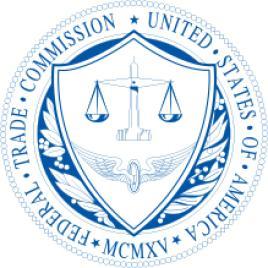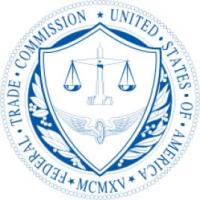FTC Approves Final Rule on Product Reviews and Testimonials

The Federal Trade Commission approved a final rule Aug. 14 that tightens product review and testimonial regulations. The new rule — 16 C.F.R. Part 465 — becomes effective Oct. 21.
The rule prohibits:
- Fake or False Consumer Reviews, Consumer Testimonials and Celebrity Testimonials: The final rule addresses reviews and testimonials that misrepresent that they are by someone who does not exist, such as AI-generated fake reviews, or who did not have actual experience with the business or its products or services, or that misrepresent the experience of the person giving it. It prohibits businesses from creating or selling such reviews or testimonials. It also prohibits them from buying such reviews, procuring them from company insiders, or disseminating such testimonials, when the business knew or should have known that the reviews or testimonials were fake or false.
- Buying Positive or Negative Reviews: The final rule prohibits businesses from providing compensation or other incentives conditioned on the writing of consumer reviews expressing a particular sentiment, either positive or negative. It clarifies that the conditional nature of the offer of compensation or incentive may be expressly or implicitly conveyed.
- Insider Reviews and Consumer Testimonials: The final rule prohibits certain reviews and testimonials written by company insiders that fail to clearly and conspicuously disclose the giver’s material connection to the business. It prohibits such reviews and testimonials given by officers or managers. It also prohibits a business from disseminating such a testimonial that the business should have known was by an officer, manager, employee or agent. Finally, it imposes requirements when officers or managers solicit consumer reviews from their own immediate relatives or from employees or agents – or when they tell employees or agents to solicit reviews from relatives and such solicitations result in reviews by immediate relatives of the employees or agents.
- Company-Controlled Review Websites: The final rule prohibits a business from misrepresenting that a website or entity it controls provides independent reviews or opinions about a category of products or services that includes its own products or services.
- Review Suppression: The final rule prohibits a business from using unfounded or groundless legal threats, physical threats, intimidation or certain false public accusations to prevent or remove a negative consumer review. The final rule also bars a business from misrepresenting that the reviews on a review portion of its website represent all or most of the reviews submitted when reviews have been suppressed based upon their ratings or negative sentiment.
- Misuse of Fake Social Media Indicators: The final rule prohibits anyone from selling or buying fake indicators of social media influence, such as followers or views generated by a bot or hijacked account. This prohibition is limited to situations in which the buyer knew or should have known that the indicators were fake and misrepresent the buyer’s influence or importance for a commercial purpose.
“Fake reviews not only waste people’s time and money, but also pollute the marketplace and divert business away from honest competitors,” FTC Chair Lina Khan said in announcing the final rule. “By strengthening the FTC’s toolkit to fight deceptive advertising, the final rule will protect Americans from getting cheated, put businesses that unlawfully game the system on notice, and promote markets that are fair, honest, and competitive.”
The final rule follows an advance notice of proposed rulemaking and a notice of proposed rulemaking announced in November 2022 and June 2023, respectively. The FTC also held an informal hearing on the proposed rule in February 2024. In response to public comments, the Commission made numerous clarifications and adjustments to its previous proposal.
As the Commission noted previously, case-by-case enforcement without civil penalty authority might not be enough to deter clearly deceptive review and testimonial practices. The Supreme Court’s decision in AMG Capital Management LLC v. FTC has hindered the FTC’s ability to seek monetary relief for consumers under the FTC Act. This rule will enhance deterrence and strengthen FTC enforcement actions.
The Commission vote to approve the final rule was 5-0.
“The Commission believes that the final rule will substantially improve its ability to combat certain specified, clearly unfair or deceptive acts or practices involving consumer reviews or testimonials,” the Federal Register notice (89 Fed. Reg. 68034) announcing the final rule said. Although these unfair or deceptive acts or practices are already unlawful under Section 5 of the FTC Act, “the rule will increase deterrence of such conduct by allowing courts to impose civil penalties against the violators.”
In addition, the final rule will allow the FTC to seek court orders requiring violators to compensate consumers for the harms caused by their unlawful conduct. “The Commission believes that the rule will accomplish these goals without significantly burdening honest businesses and that the rule will provide significant benefits to consumers and honest competitors.”
The final rule will allow courts to impose civil penalties under Section 5(m)(1)(A) of the FTC Act (15 U.S.C. §45(m)(1)(A)), against “those who engage in the deceptive or unfair conduct that the final rule prohibits,” the notice said. “The ability to obtain civil penalties is important because it can be difficult to quantify consumer losses that stem from the use of unfair or deceptive consumer reviews and testimonials. Without civil penalties, persons who engage in such conduct might avoid monetary consequences for their unlawful conduct simply because there is insufficient evidence to link their unlawful conduct to quantifiable losses suffered by consumers.”
Because the final rule will allow courts to impose civil penalties for violations, “it provides the deterrence necessary to incentivize compliance with the law, even in cases where it is difficult to quantify consumer harm,” the notice said.
The Commission added the new rule “is necessary to allow the Commission to recover redress more efficiently to redress consumer harm resulting from the unfair or deceptive use of reviews or testimonials.” The notice noted that in 2021, the U.S. Supreme Court in AMG Capital Management, LLC v. FTC ruled that Section 13(b) of the FTC Act did not authorize the Commission to seek court orders requiring the return of money unlawfully taken from consumers through unfair or deceptive acts or practices or to give up unjust gains earned from engaging in such unlawful conduct.
“The AMG ruling has made it significantly more difficult for the Commission to return money to injured consumers, particularly in cases that do not involve rule violations,” the notice said. “Since AMG, the primary means for the Commission to return money unlawfully taken from consumers is Section 19 of the FTC Act, 15 U.S.C. 57b, which provides two paths for consumer redress,” the notice said. The longer path, under Section 19(a)(2), “requires the Commission to file two separate actions to obtain monetary relief. The more efficient path to monetary relief is under Section 19(a)(1), which allows the Commission to recover redress in one federal court action for violations of a Commission rule relating to unfair or deceptive acts or practices,” the notice said.
However, only a few of the FTC’s past cases challenging unfair or deceptive consumer reviews or testimonials involved rule violations that would allow the agency to seek monetary relief under Section 19(a)(1). “With the final rule, however, the Commission will be able to use Section 19(a)(1) to obtain redress for consumer losses attributable to violations of the rule,” the notice said.
“The unfair or deceptive acts or practices involving reviews and testimonials encompassed by this final rule are prevalent and harmful to consumers and honest businesses,” the notice said. “Thus, the unlocking of additional remedies through this rulemaking – particularly, the ability to obtain civil penalties against violators and redress for consumers or others injured by the conduct – will allow the Commission to more effectively police and deter harmful review and testimonial practices that plague consumers and honest businesses,” the notice said.



